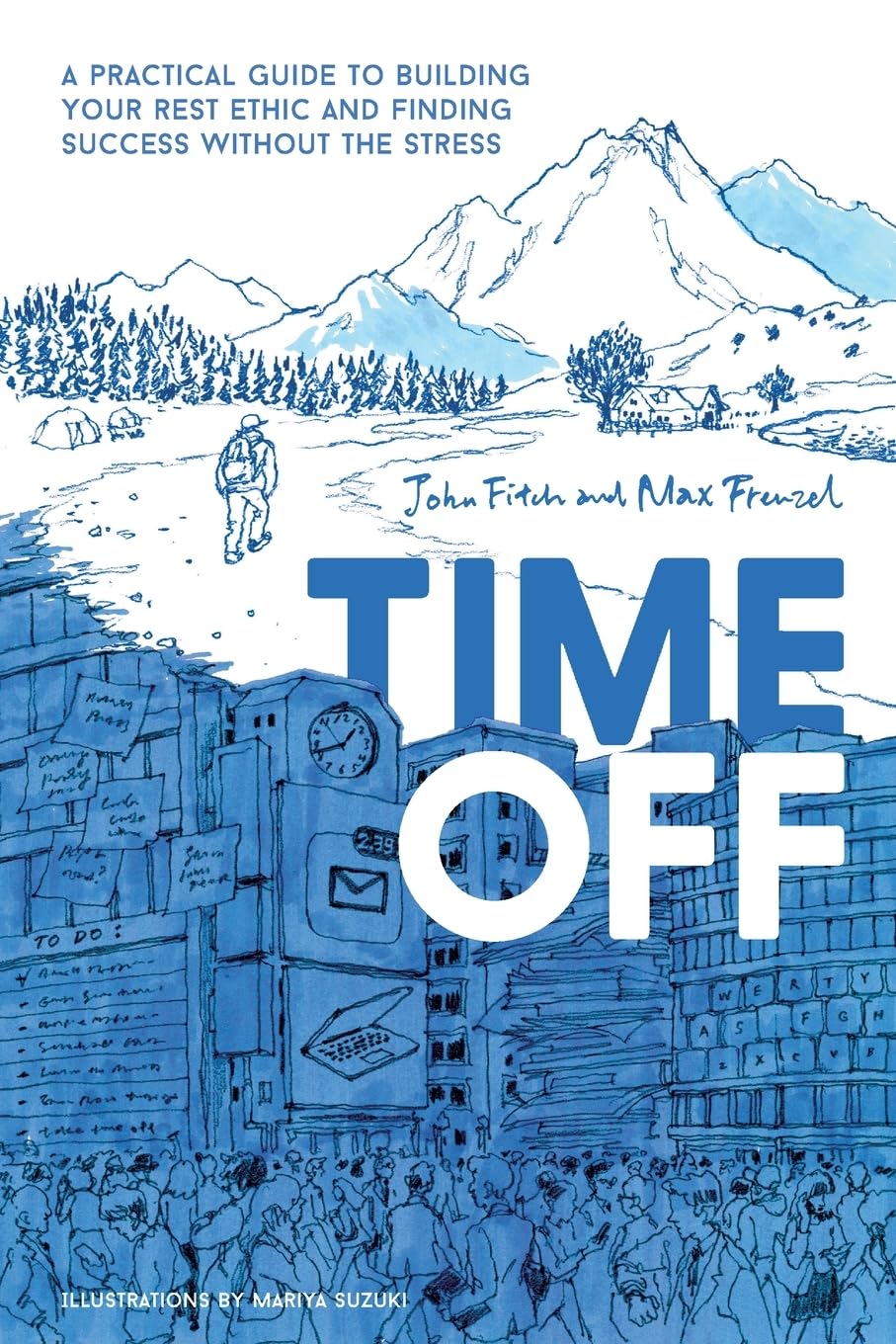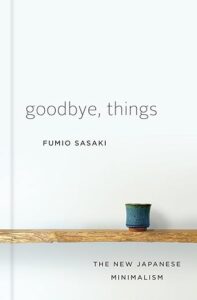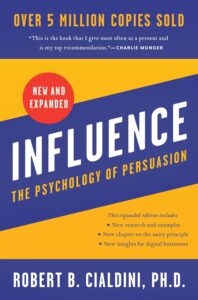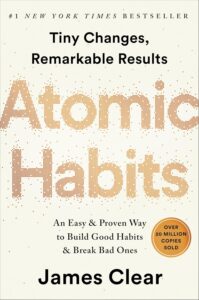Book in 3 Sentences
- Taking time off is not only essential for mental and physical health, but also, counterintuitively, for producing great work (in and outside of your classical “work”).
- Plan your time off and be able to mentally switch “on” and “off” between work and off-time. Do this by scheduling and planning.
- The best ways to take time off are with creative play, nature, exercise, sleep, solitude, reflection, and travel (I’ve recently found extended solitude in nature is something magical; Darwin, Newton, Einstein, Thoreau, and Tchaikovsky agree ).
Impression
Time Off is an amazing counter-productivity book, that actually teaches you how to be more productive than ever before. John Fitch and Max Frenzel take a historical, philosophical, and (my favorite), scientific approach to taking time off and argue through evidence that working less (for most people) will result in, overall, better work. Not only that, when we take time off we will be happier, more curious, and more healthy, which allows us to be even more productive.
I read this book over two days and gave it 4/5 stars because it addresses and gives action items for how, why, and when to take time off on a daily, weekly, monthly, and yearly scale. It lost a star because the final third of the book was slightly disjointed and some scientific conclusions are incorrect.
Like/Disliked
| What I Liked | What I Disliked |
| – Historical approach to time off – Philosopher’s approach to time off – Actionable tips on how to take time off – Short chapters and counter-productivity lessons | – Some conclusions, “this causes this,” is pulled from incomplete/erroneous evidence – The last third of the book seems disjointed compared to the first 2/3rds |
Who Should Read
| ✅ Perfect For: | ❌ Skip If: |
| – People who feel burnt out – People wanting to get more out life’s work and play – Scientific minded people who like to learn about the evidence behind productivity – Historical people who like to learn about the philosophy and history of work (and play) | – You have a perfect mental state at work and with time off – You don’t believe it’s ok to take time off for any reason |
Top 3 Quotes
The god Kairos was the youngest son of Zeus. He believed to be the spirit of opportunity[…] he is bald except for a lock of hair on his forehead, which must be grabbed from the front. Kairos can be graspsed only as he approaches. Once he has passed you, not even Zeus can pull him back.
How would you run your own life, with a continuing desire to create but no immediate need to make the next mortgage payment? The answer to this question should be your new definition of retirement, and you can probably achieve it much earlier than you previously thought.
Far from idleness being the root of all evil, it is rather the only true good. – Kirkegaard
3 Actions I’m Taking After Reading
- Have a set work and leisure time, scheduled in my calendar on a daily, weekly, monthly, and yearly scale and be 100% in each mode at each time.
- Integrate a daily no-phone walk in nature for 30-60 minutes.
- Integrate 60 minutes a day of curiosity, creativity, and learning play time to explore ideas and concepts and tinker on whatever I want to that is not mandated by work. My ideal (interrupted by working out and relaxed eating time) is 6-8 and 9-11 would be “real work” while 1 pm – 5 pm every day would be learning/tinkering, and all other times would be “nothing” like reading, exercise, nature, social connection, writing, cooking, walking, playing, exploring, or anything at all.
All Notes
- People are usually only productive for about 3 hours per work day.1
- Two hours at 50% work does not equal one hour at 100% at all. This applies to work and vacation time.
- Humans have been hunter-gatherers for about 300,000 years (3 Million years if you include previous species of the genus “Homo” who were also hunter gatherers), only in the past 10,000 years (during the Neolithic revolution). So for only 0.3% of human’s time, have we not been hunter/gathering. Maybe 3,000 years ago (.1% of humans time) have we had “jobs” (there were Clay tablets found in Mesopotamia from Sumer showing workers received rations of barley/oil in exchange for labor. And 250 years ago was the first time we had regimented work weeks. So 99.992% of human’s history there have been no constrained work. So how can we possibly expect our brains to handle this well? The Greeks and Romans knew this and called it noble leisure; taking time off for time off’s sake. Around the the 18th century, as hours of work translated to literal output of clothes, machinery, or products, less productivity literally meant less money, and, so, workers were worked to the bone usually 10-16 hour days six days a week. Only in the early 1900s did Henry Ford change this to the eight-hour work day with 5-day weeks, but, not for his good heart, but to extract top talent from competitors.
- “As I must repeat once again, the first principle of all action is leisure.” —Aristotle.
- Intentional no-chronos days are when you intentionally don’t pay attention to your watch or clock.
- “How you spend your time became conflated with who you are. Are you productive (good)? Or idle (bad)? We fully internalized the idea that work is morally good, which makes it extremely hard to shake off, even – or maybe especially – in a knowledge economy.”
- Bertrand Russel believes everyone should work only 4 hours a day, “In a world where no one is compelled to work more than four hours a day every person possessed of scientific curiosity will be able to indulge it, and every painter will be able to paint without starving, however excellent his pictures may be[…] above all, there will be happiness and joy of life, instead of frayed nerves [and] weariness.”
- Productivity does not to have to just apply to work, entrepreneur Stephan Aarstol says, “if you were done with work by 1 pm every day, it’s easy to see how you, depending on your interests could become a different type of productive. Productive in exercise, learning, parenting, social causes, community and more. Productivity that advances society, and creates a better world around you, goes fare beyond merely being productive at your job.”
- In 2019, the WHO added “burnout” to their classification of diseases characterized by three components, “feelings of energy depletion or exhaustion; increased mental distance from one’s job, or feelings of negativism or cynicism related to one’s job; and reduced professional efficiency.”
- Two of the greatest composers of all time, Pyotr Tchaikovsky and Beethoven, would for hours daily to calm the mind and inspire ideas. Tchaikovsky says, “In the mist of this magic process [of flow] it frequently happens that some external interruption wakes me from my somnamulistic state: a ring at the bell, the entrance of my servant, the striking of the clock… Dreadful, indeed, are such interruptions. Sometimes they break the thread of inspiration for a considerable time, so that I have to seek it again – often in vain.”
- Charles Darwin only worked for three 90-minute periods a day and otherwise spent his days on long walks, naps, or lost in thought. Henri Poincare, oly worked from 10 am to noon and 5 to 7 pm.
- G.H. Hardy believed that four hours of conscious work was the maximum and filing the other time with anything “busy” related was counterproductive.
- The 10,000 hour rule, from Outliers and Anders Ericsson, only applies when that practice is limted per day, and four hours seems to be the ideal number. Also, top performers rested more with about one hour of sleep more than others.
- Web dev company, Basecamp, found that “just the same amount of work gets done in four days vs. five days…. Three-day weekends mean people come back extra refreshed on Monday. Three-day weekends mean people come back happier on Monday. Three-day weekends mean people actually work harder and more efficiently during the four day week.”
- “Far from idleness being the root of all evil, it is rather the only true good.”—Soren Kierkegaard.
- “All of humanity’s problems stem from man’s inability to sit quietly in a room alone.”—Blaise Pascal. I would expand on this to say, “All of humanity’s problems stem from man’s inability to sit quietly in a room alone, with no external stimulation from a device.”
- Develop a work shutdown routine. Mine is: ToDos for tomorrow, open up 1st file/browser tab for tomorrow, set aside clothes/books/materials for tomorrow, put away phone, take a shower, read a fun book, sleep.
- Sleeping better is a guarantee for a happier and more productive life.
- “Reflect on three questions: if you lost all of your material goods today, what are the things you could still be grateful for? How would you rebuild your life? In what ways could it actually be an opportunity in disguise?
- Find the right projects by making a “more or less” list. On one half of the page, after drawing a line down the middle, list what you want more of in your life (like family dinners or exciting projects) and on the other side of the page write down things you want less of (like answering emails or downer clients). Then, when a new project comes into your inbox, look at your page and see if you would be happier with or without this new project.
- “We get such a kick out of looking forward to pleasures and rushing ahead to meet them that we can’t slow down enough to enjoy them when they come. We are therefore a civilization which suffers from Chronic disappointment – a formidable swarm of spoiled children smashing their toys.”
- This just sounds really fun, Alice Waters has a great Sunday ritual, “You know, that’s what I do every Sunday: I invite my friends over. I have food I got from the farmer’s market. We don’t know what we’re going to cook, and we just figure it out. Then we all set the table and all clean up. It’s really a moment in my week that I always look forward to.”
- Try and add more JOMO to your life, “JOMO, the joy of missing out. […] Hesse believed that missing out on such things can actually improve our quality of life, as well as our quality of work. There is no need to follow every news article, see every new movie, immediately read and reply to every message we receive, or be aware of every development in our chosen field. In fact, those activities that give us a quick fix of feeling productive or entertained are often precisely the things that distract us from real productivity and joy. Instead of fearing what we are missing out on, we should celebrate the pleasure of having gained a little more time and mental space and courageously defend this decision.”
- Don’t be so regimented when you travel, Rolf Potts, the author of Vagabonding says, “Instead of worrying about whether you’re a tourist or a traveler, the secret to seeing your surroundings on the road is simply to keep things real[…] like a child at play, open your eyes, activate your lantern mindset and be amazed and inspired by the world around you.” And, one of my favorite quotes from Moby Dick, “It is not down any map; true places never are.”
- Modern technology hacks our survival mechanisms in our brain, “[…] the like button provides instant access to social approval t any time, and we desperately crave this attention. This ancient drive also explains our urge to instantly respond to all messages or emails we receive. Again, we still have that deep-seated fear of becoming tiger food if we don’t respond to the tribe’s social prodding, and in some company cultures this is unfortunately too far from the truth[…] Being fully aware of the science and our fundamental fears and cravings, developers carefully designed many technologies to capitalize on these addictive properties[…] we have more information available to us than ever, yet our ability to absorb this information seems to be lower than ever.”
- Integrate a once-a-week technical sabbath. No screens, no phones, no nuthin’.
- Brunello Cucinelli’s daily routine is amazing. I want to visit Umbria now.
- The author’s company ethos, “We believed that leisure can similarly augment and enhance our ability to create. Hobbies, side projects, and other pursuits – such as this book – were not just tolerated, but actively encouraged because we understood that this kind of active and high-quality leisure will not only increase our happiness but also feed back into the work we do. To do interesting work, you have to live an interesting life!




